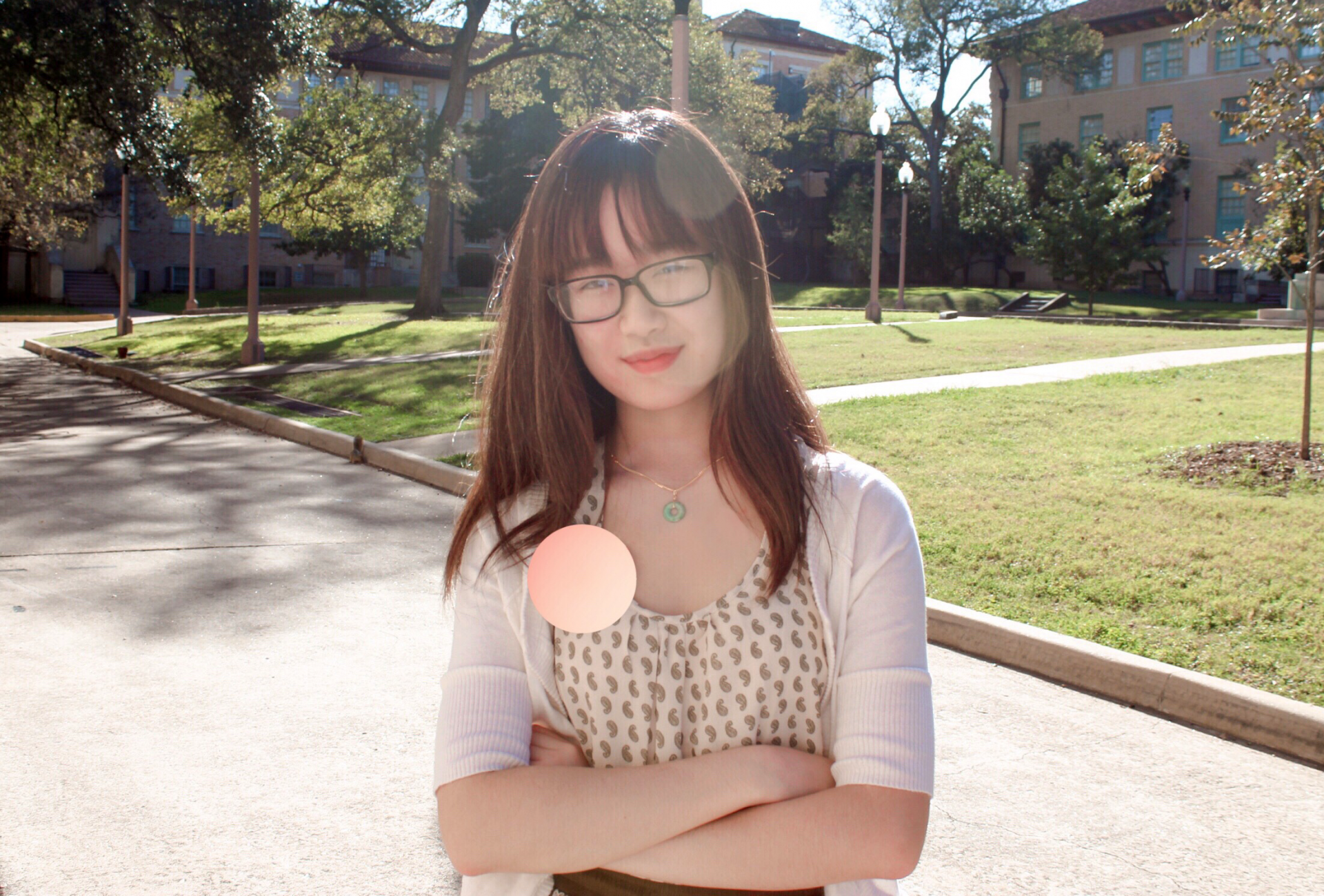Celeste Oon is an Asian studies and linguistics senior from San Antonio, Texas. She was named a 2021 Dean’s Distinguished Graduate, one of only 12 liberal arts students honored each year. In this Q&A, read more about her thesis on Asian transnational fandoms, her advice to other first-generation students and what it was like co-founding her nonprofit organization.
What is your favorite thing about studying language?
I love the fact that learning a new language opens up so many doors. You get the chance to consume new media, meet and speak to people you never would’ve interacted with before, and learn about foreign cultures. Of course, you can do these things without learning a new language, but actually taking the time to learn will eliminate the need for translation, and this is really useful in getting a grasp on the nuances of language and culture.
As a linguistics major and a translator of Asian languages for several years now, the nuances of language are really important to me, because there’s so much you can’t pick up from translations alone. And as an added bonus, when you learn a new language, you actually gain insight on ones you already know because they may share similarities or be related in some way.
Tell us about your thesis.
My thesis for Asian studies, if I were to summarize it in one sentence, explores power dynamics, capital accumulation, and sources of conflict in Asian transnational fandoms. It takes a focus on online communities, since the internet is so prominent in our lives today, but analyzes how online sentiment can leak into real-life perceptions of people based on socioeconomic status, cultural identity and nationality. … Ultimately, my thesis seeks to emphasize the role of shifting circumstances in forming identity. This is to combat harmful stereotypes and discriminatory judgments that many fans have been subjected to due to the centering of immutable cultural characteristics as the primary source of online conflict.
Can you offer advice for other first-generation college students?
I would say to take advantage of the resources you have at UT and not be afraid to ask questions. As first-generation students, there’s so much we don’t know about college. I had no idea what the logistics of studying abroad were, or what kinds of scholarships and awards were available at UT. But as I kept talking to my professors and other mentors here, I started to apply for more opportunities that I would’ve never known about otherwise. I definitely would’ve not had such a rich experience here had it not been for the guidance I received, so I would seek out some reliable mentors, whether it’s your professors, advisors, or older students, and ask them for advice. I personally love mentoring younger students and telling them about UT, so I’m sure they would be glad to help you out.
What was the most rewarding part of your exchange program in Seoul?
It’s hard to pick just one aspect because my study abroad trip was truly the highlight of my college experience and honestly my life entirely. I think what I treasured most was the ability to learn about South Korea in the classroom, and then step outside and experience it firsthand. I did a lot of ethnographic research while I was there by simply living my life and spending time around people. With the wonderful public transportation system they have there, I had so much freedom to move around and experience living in a foreign country for the first time.
Why did you start your nonprofit organization, Dear the World?
Dear the World is a social and impact enterprise with a mission to amplify conversations about global issues and aid individuals in need by empowering communities to be agents of change. We have a dual model of education and fundraising: On top of educating others about important issues in the world, we contribute tangible change by fundraising to support these causes. The idea for Dear the World was conceived in 2019 after a long conversation with a good friend of mine. We felt like we were at a point in our lives where we could give back to others, and wanted to do more to benefit the communities we were a part of. Especially as a first-generation college student, first-generation immigrant, and woman of color, I think it’s imperative to aid disadvantaged groups and help others. Dear the World was born out of this desire to work for the greater good and move towards a better future.
What are your hopes for the organization moving forward?
As I’m now graduating, I plan on investing all of my energy into Dear the World and making it the best organization it can be. Success, for me, is measured through the impact we make on the lives of the community members we serve. We have so many plans to implement within the next two years especially, including hosting volunteer events, mentoring youth, distributing grants, and more. Above all, I really hope that we’ll be able to see the fruits of our efforts and that other people will join us in carrying out our mission.
Do you have other professional goals?
As far as my scholarly career, I’m applying for graduate school this upcoming cycle and plan on pursuing a Ph.D. in Media/Cultural Studies. After graduating, I would love to teach in higher education with a special concentration in Asian media and audience reception.
Within the past year, I’ve also picked up a goal of eventually writing a book about my research, because I’ve become so inspired seeing professors and scholars I know publish books and add to the growing literature of media studies. Ultimately, I really hope that the scholarly work I do is able to make a valuable contribution to the field.
